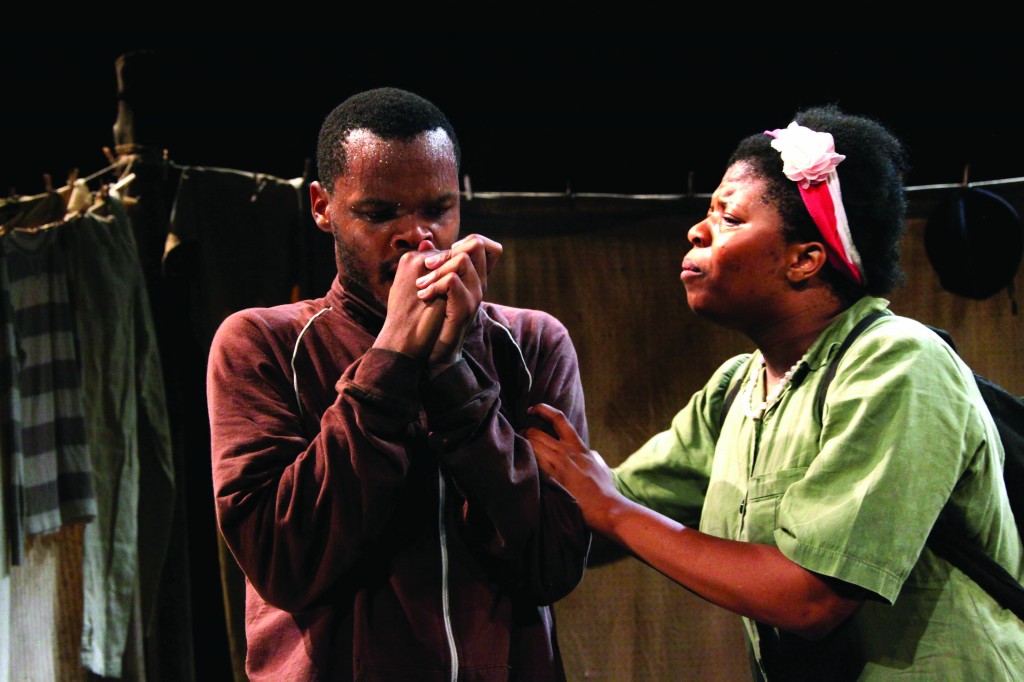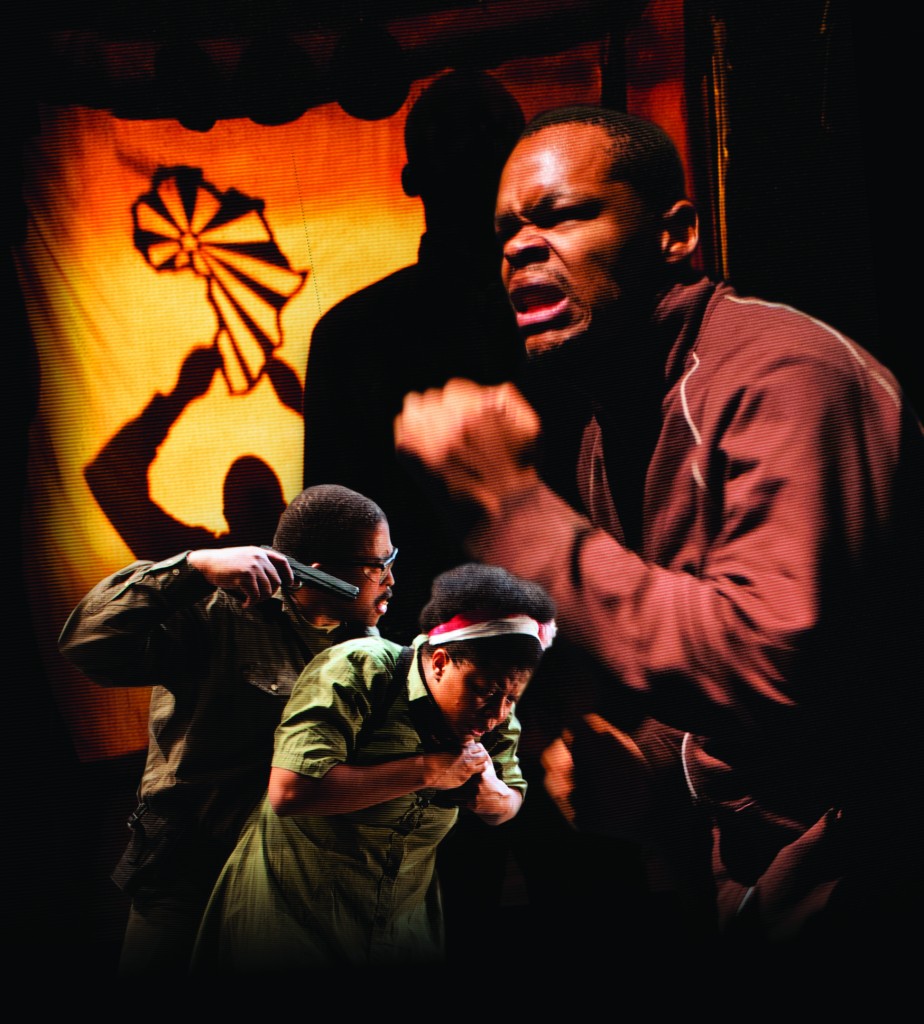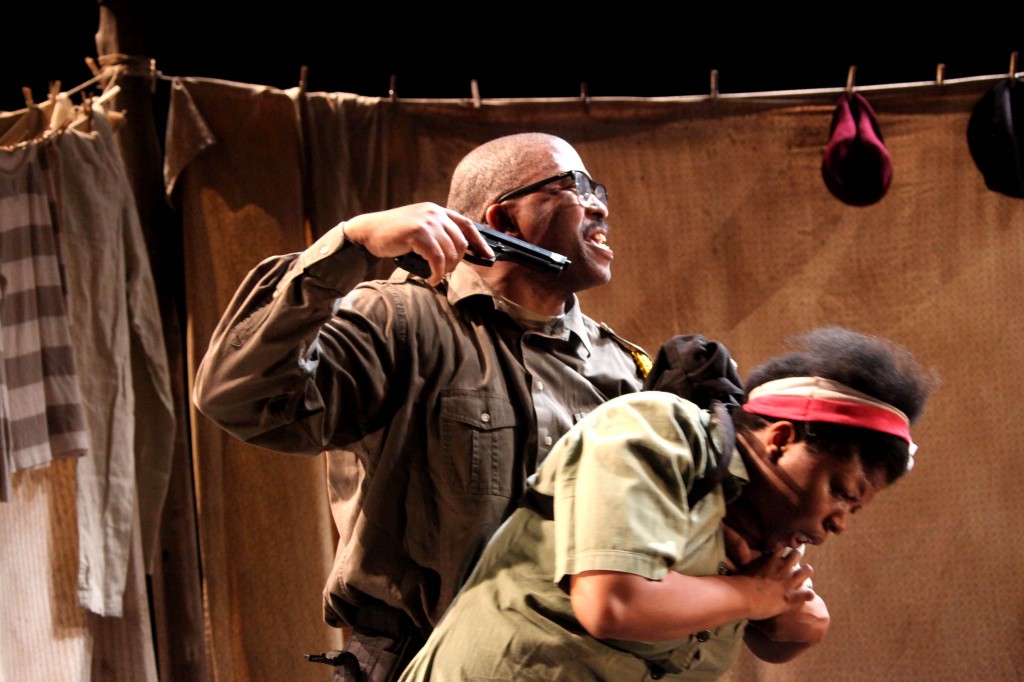
Credit: Ruphin Coudyzer
At The Cultch until March 8, 2015
604-251-1363/thecultch.com
Posted March 4, 2015
“This. Is. My. Land. This. Is. Not. Your. Land.” These words, delivered in a loud, venomous staccato by Crocodile, the brutal Afrikaner police officer, send shock waves through young, black Gregory in Omphile Molusi’s powerful play, Cadre. The words also resonate with chilling familiarity here where our First Nations people continue to be marginalized in a country where their ancestors – like the indigenous people of South Africa – have lived, generation after generation. “Place,” I heard recently, “is how we know who we are.” When ‘place’ is usurped what’s left?
Gregory (powerfully played by the playwright himself) takes us back to his 1960s childhood, a period of innocence and budding romance between himself and his school friend Sasa (Lillian Tshabalala) and it continues through to his disillusioned adulthood in 2015: “I thought that I would be free.”
While Molusi plays both young, baseball-capped Gregory and adult Gregory, Fezile Mpela and Tshabalala play all the other roles including Gregory’s stern, minister father, his loving mother, and his activist brother. Scott Davis’s set – a series of dusty, shabby sheets strung between wooden posts – lends itself to the rooms of Gregory’s house, the streets of his village, the police station and various other locales. Shadow puppets indicate the time frame: 1965, 1966, 1994 and 2015.

Credit: Michael Brosilow
Without a better understanding of South African politics, it’s easy to be a bit bewildered by the various activist groups referred to. But there is tremendous strength in the writing and performance. And the situation in which Gregory eventually finds himself – “Kill or be killed” – is terrifying, especially in the intimacy of The Cultch. If the greater good is served by the killing of innocents, can it be justified? This is the decision Gregory (later ‘Jackson’, a spy for the black nationalists) is forced to make.
The play spans the pre- and post-apartheid period and, while from this safe distance it’s easy to believe things are better now in South Africa, playwright Molusi shows us that change is painful and slow; apartheid is gone but deeply embedded prejudices remain. Amongst the young, it’s taking too long for Gregory’s dream of “education, medical care and good government” to become a reality. Intolerance persists: imagine a young pianist charged with “civil disobedience” for playing all the keys on the piano; “Only white people are allowed to play the white keys”, barks Crocodile. When the musician complains, she’s charged with “resisting arrest.”
Cadre, produced by Chicago Shakespeare Theater and Richard Jordan Productions in association with Johannesburg’s Market Theatre, is seventy minutes of intense and disturbing storytelling that includes violence and brutality. No bells, no whistles, it’s a ‘poor theatre’ presentation with wonderful, sometimes joyful, sometimes haunting, a cappella singing. It is an eye-opener for those who thought democracy had finally arrived in South Africa and it’s a fervent call for direct action by the people. More will be imprisoned and more will die before Nelson Mandela’s dream is fully realized. Apartheid may be dead but it just won’t lie down.

Credit: Ruphin Coudyzer

